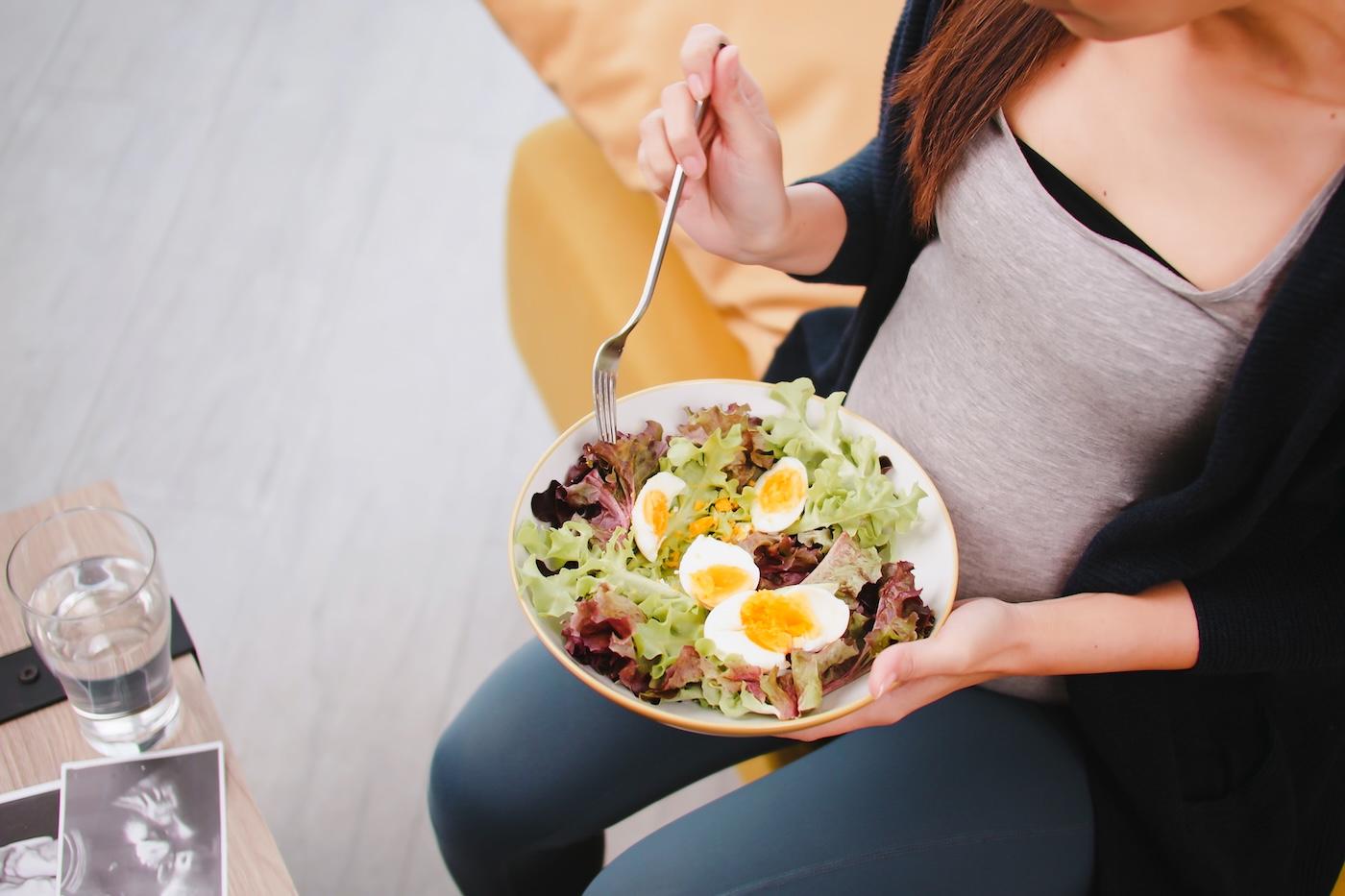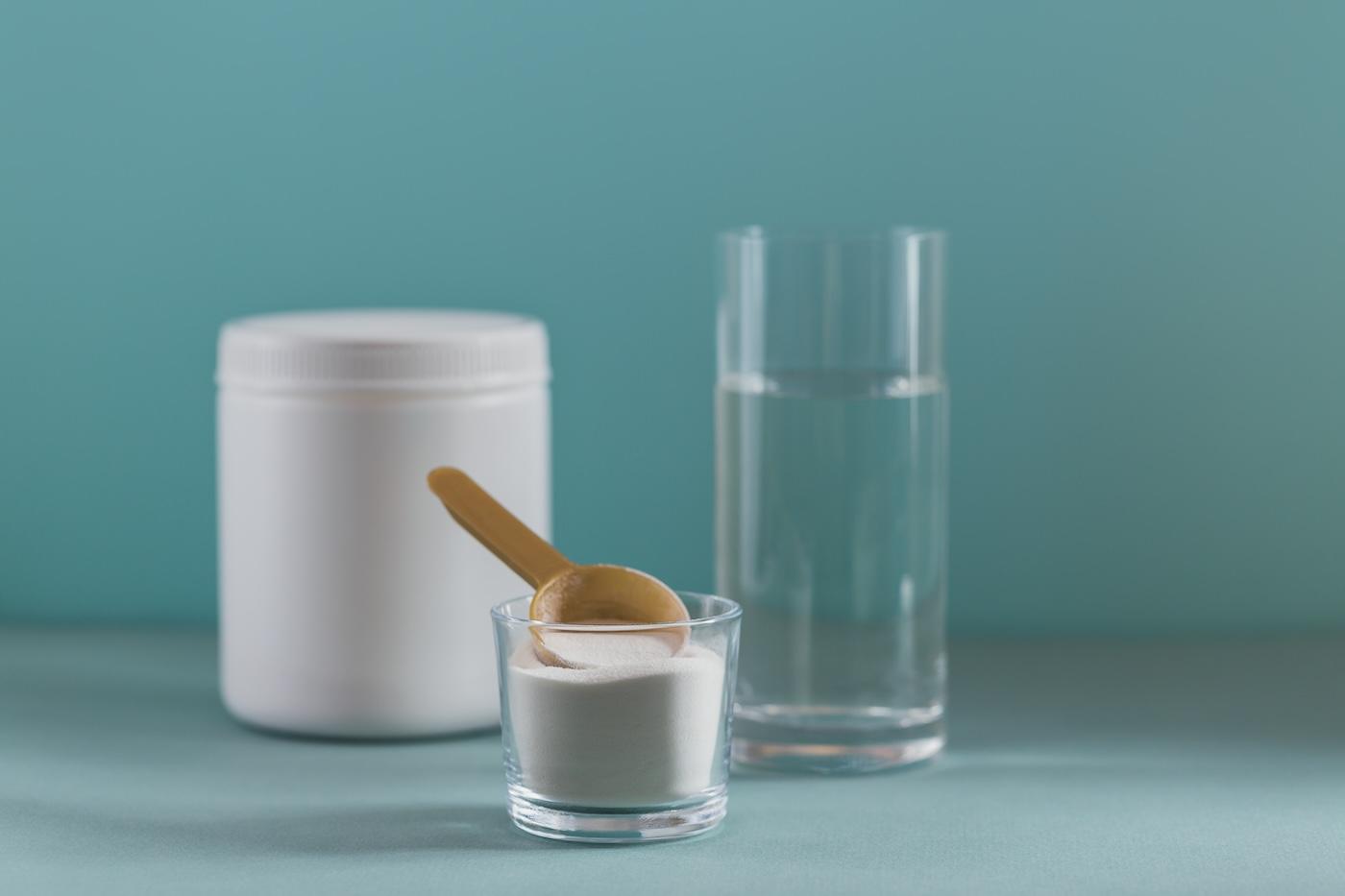PREGNANCY
8 Ways to Help Ease Morning Sickness
What you eat—and how you eat it—can greatly impact the nausea and vomiting associated with your morning sickness. Here’s help!

Written by
Gabrielle McPherson, MS, RDN, LDN

Never mind the telltale baby bump, morning sickness is one of the earliest and most revealing signs that you’re pregnant! It can begin almost anytime during the first trimester, usually between the six- and eight-week mark, and it affects 70% of pregnant folks across the globe. So, if you’re struggling with morning sickness, know that you are most certainly not alone. But also know that you can ease morning sickness with what you eat and drink.
What causes morning sickness?
“Morning sickness” is a misnomer, since the nausea, vomiting, and dry heaving can happen at any point of the day—and for some, it can last an entire pregnancy. The cause of morning sickness is still unclear, though research shows that symptoms are stronger with those who have higher levels of the pregnancy hormone human chorionic gonadotropin (hCG) in their system. Translation: If you're expecting multiples, you may experience more morning sickness symptoms than others. And being pregnant with twins (or more) also increases your chance of extreme, persistent morning sickness during pregnancy, called hyperemesis gravidarum. (Carrying a girl and having a history of motion sickness also ups your chances of severe morning sickness)
Is morning sickness dangerous?
Though morning sickness is common in pregnancy, it’s nothing to dismiss! Morning sickness can significantly influence your ability to function day to day, it can take an emotional toll on you, and for some with hyperemesis gravidarum, it may cause significant weight loss, dehydration, or hospitalization. And, of course, morning sickness impacts your ability to eat and drink, which can jeopardize your health and your baby’s growth. The silver lining? Studies have shown that morning sickness may have protective benefits on rates of certain birth defects, prematurity, and miscarriages. But that doesn’t mean that you must suffer! Here's what helps.
Can I avoid morning sickness?
Changing up the food you eat—and when you eat it—can dramatically reduce your morning sickness.
Eat often to avoid an empty stomach.
Even though your appetite may be small—or even non-existent—when experiencing nausea and vomiting, eating often can actually help to sidestep your morning sickness symptoms. That’s because nausea and vomiting can get worse when you’re running on an empty stomach. Shoot for three meals (they can be small) and two to three snacks daily. To make it easier, stash easy-to-pack snacks with you when you’re on the go, like:
- Apples
- Dried berries
- Dry cereal
- Granola bar
- Grapes
- Nut bar
- Pretzels
- Saltine crackers and light cheese
- Whole wheat muffin
Stay hydrated.
Since dehydration can be a major consequence of morning sickness, remaining hydrated is key…and that goes beyond simply drinking water. In addition to plenty of water, stay hydrated by choosing high-water fruits and vegetables like citrus, melon, celery, and cucumbers and by eating popsicles and drinking smoothies and tea, namely ginger tea. The tea will not only hydrate you, but ginger is a known remedy for reducing nausea and vomiting symptoms in pregnancy.
Include protein at every meal.
Eating protein-rich foods can help stave off nausea and increase your energy, according to research. Plus, adding protein to every meal and snack helps you stay fuller longer and it helps your blood sugar levels remain in a healthy range. Some protein-packed foods to keep in mind:
- Avocado
- Edamame
- Eggs
- Hummus
- Light cheese
- Milk or soy milk
- Nuts and seeds
- Roasted chickpeas
- Shredded chicken
- Yogurt
Avoid strong-smelling foods.
Cooking with strong-smelling herbs and spices such as garlic, oregano, curry, or basil can trigger nausea and vomiting. For the time being, consider using less pungent ingredients in your cooking, like lemon juice, lime juice, salt, pepper, or broth.
Choose foods rich in vitamin B6.
Vitamin B6 has long been touted as a safe and effective treatment for pregnancy-related nausea. In fact, research has shown that a combo of B6 supplements and doxylamine (an antihistamine) is associated with a 70% reduction in morning sickness symptoms. With that, it’s a good idea to include more B6-rich foods into your diet, too, such as:
- Bananas
- Chicken
- Chickpeas
- Fortified cereals
- Marinara sauce
- Potatoes
- Salmon
- Tuna
Steer clear of fatty and greasy foods.
High-fat, greasy foods, like sausage, bacon, pizza, fried chicken, buttery crackers, french fries, chips, and desserts, are difficult to digest and may trigger morning sickness symptoms. To help keep nausea at bay, opt for foods that are easier to digest, like lean proteins, fruits, vegetables, light dairy, and whole-grain foods.
Try aromatherapy.
Sounds nutty, but it’s true! It turns out, sniffing pleasant smells might ward off morning sickness! One study of 100 pregnant people found that those who inhaled lemon essential oil had significantly lower intensity nausea and vomiting than those given a placebo. Another study found similar benefits from sniffing peppermint essential oil.
Talk to your health care provider.
If you’re experiencing nausea or vomiting while expecting, don't hesitate to discuss treatment options like medication, vitamin B6, or ginger with your healthcare provider. Together, you can come up with a plan to ease morning sickness symptoms and get you feeling like yourself again. However, if you're dealing with the following morning sickness symptoms, reach out to your OB/GYN or midwife sooner rather than later.
- Vomiting more than 3 times a day
- Brown or bloody vomit
- Continuous symptoms into your fourth month of pregnancy
- Weight loss of more than 2 pounds
- Increased heart rate
- Reduced or no urine output
Disclaimer: The information on our site is NOT medical advice for any specific person or condition. It is only meant as general information. If you have any medical questions and concerns about your child or yourself, please contact your health provider.
SHARE THIS ARTICLE
MOST LOVED
Sleepytime Sidekicks
More on Pregnancy
About Gabrielle McPherson, MS, RDN, LDN
Gabrielle McPherson, MS, RDN, LDN is registered dietitian in Missouri who specializes in community and pediatric nutrition. Gaby is passionate about encouraging families to eat well in simple, practical ways that are realistic...and delicious! When not working, Gaby loves cooking, baking, and making messes and memories with her sous-chef/preschooler Charlotte.












